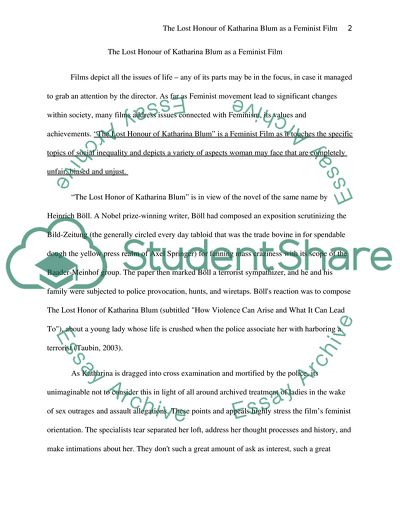Cite this document
(“Is The Lost Honour of Katharina Blum a feminist film If so,why Movie Review”, n.d.)
Retrieved from https://studentshare.org/visual-arts-film-studies/1694298-is-the-lost-honour-of-katharina-blum-a-feminist-film-if-sowhy
Retrieved from https://studentshare.org/visual-arts-film-studies/1694298-is-the-lost-honour-of-katharina-blum-a-feminist-film-if-sowhy
(Is The Lost Honour of Katharina Blum a Feminist Film If so,why Movie Review)
https://studentshare.org/visual-arts-film-studies/1694298-is-the-lost-honour-of-katharina-blum-a-feminist-film-if-sowhy.
https://studentshare.org/visual-arts-film-studies/1694298-is-the-lost-honour-of-katharina-blum-a-feminist-film-if-sowhy.
“Is The Lost Honour of Katharina Blum a Feminist Film If so,why Movie Review”, n.d. https://studentshare.org/visual-arts-film-studies/1694298-is-the-lost-honour-of-katharina-blum-a-feminist-film-if-sowhy.


